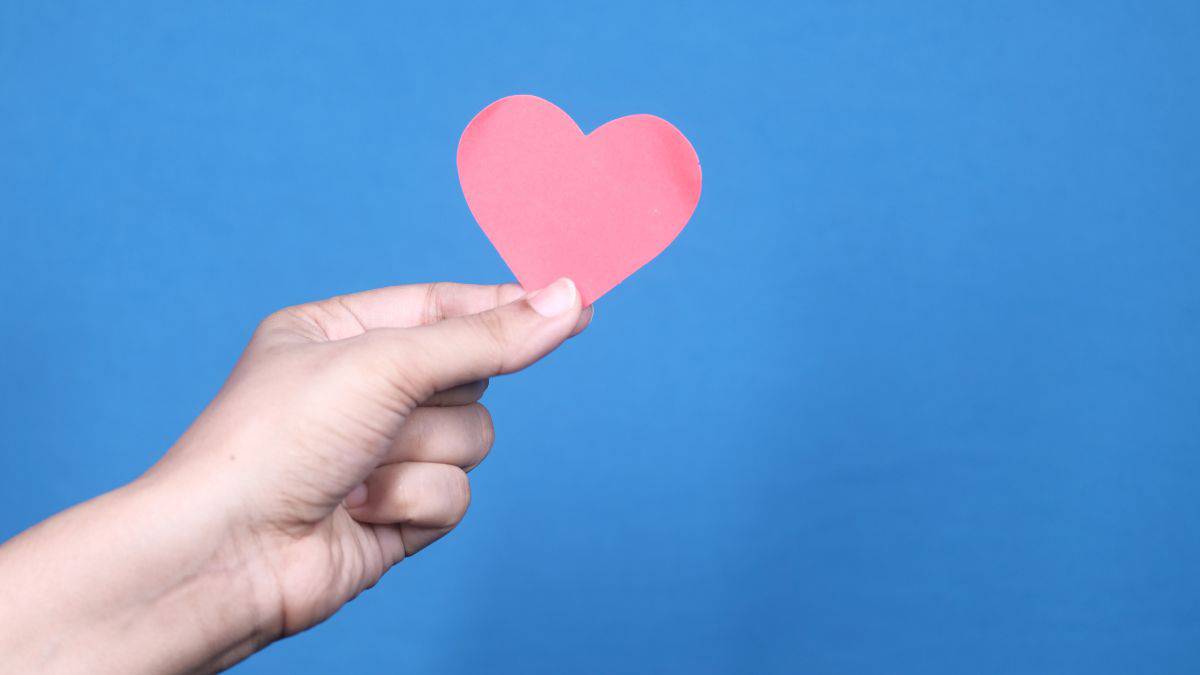Empathy is a factor in humankind’s kindest and most altruistic actions, as well as its darkest and cruelest misdeeds. It can be the difference between a life of warmth and joy and one of cynicism and isolation. If it was within our power, it’s easy to see which we would all choose. And as it turns out, empathy is within your power to develop.
Empathy is the fuel of the fire of human connection. It encourages you to make choices that help others, avoid ones that hurt them, and reap massive emotional rewards in the process. It strengthens your relationships and enables you to lead a genuinely fulfilling life. Best of all, it’s something that you can intentionally foster and cultivate.
Recognizing Empathy
Empathy, our ability to process and understand the thoughts and feelings of someone else, is an essential building block of relationships, communities, and societies.
We often refer to empathy in an interpersonal context, but we can also feel it for animals, fictional characters, and even plants. Empathy gives us a window into another’s experience, which can, in turn, influence our thoughts and actions.
When you share in the tragic disappointment or anger of someone close to you, empathy is the driving force behind your experience. It likewise enables you to feel excitement for others’ successes and motivation to protect them from harm.
The ability to feel the joys, pains, hopes, and fears of another’s life is a roller coaster. At varying times it can bring overflowing joy, deep sadness, or infuriating frustration. Yet, in all of these cases, the ability to feel empathy helps us connect with others, build relationships and communities, and find more fulfillment in the journey of life.
Empathy vs. Sympathy
Many of us struggle to distinguish empathy from sympathy, and understandably so. The terms are quite similar, and both their meanings have shifted over time.
Sympathy most often refers to the capacity to understand another’s feelings, typically negative ones, albeit with a degree of emotional separation. For instance, you may sympathize with another person’s grief, sadness, or personal distress, but that doesn’t necessarily mean feeling it firsthand. Instead, the resulting emotion is usually more akin to pity.
Alternatively, in a disagreement, you may sympathize with a stance that you disagree with but understand.
On the other hand, empathy more broadly describes one’s ability to connect and radiate with whatever another person is feeling. That often involves directly mirroring someone’s thoughts and feelings and adopting something similar within yourself.
Sympathy helps us understand others’ pain and provide support for them, while empathy puts us directly in their shoes and helps us see the world through their eyes.
Empathy vs. Compassion
Distinguishing empathy from compassion is trickier than it is with sympathy. Both words cover a range of emotions, not just painful ones.
The main difference between the two is that compassion typically has a motivation or action component, whereas empathy does not necessarily. Empathy helps you understand and relate to another person’s feelings, and compassion makes you want to do something about it.
For instance, if you see a person in physical pain, sympathy usually means wishing them well, and empathy means relating to their pain and wishing them well. Either of these sensations may lead to a desire to help. However, compassion is the only of the three that necessarily includes that desire.
Don’t sweat it too much if you have trouble separating these three terms. They are very similar. Plus, all come from a similar place and lead to similar outcomes: improving your ability to think selflessly, act kindly, and connect with others.
How Empathy Benefits Everyone
The ability to empathize is essential to thriving both individually and as a species.
You need empathy in order to build healthy relationships and strengthen your connections to others. After all, a relationship is a situation in which you relate to someone else, and how can you relate to someone else without empathy?
By recognizing signs like facial expressions, body language, and the moods of people in your vicinity, you can better resonate with their emotional state. Skills like these are the basis of emotional intelligence, and crucial in building connections with others.
For example, this emotional radar helps you laugh with a friend about something funny, comfort them about something sad, or join them in righteous anger when someone else mistreats them. Behaviors like these build trust, understanding, and friendship.
Your ability to regulate your emotions also increases with empathy. Your sense of how others feel helps to gauge your current state and adjust when appropriate. Of course, everyone is entitled to their own emotions, which are valid and deserve their own space. However, when you feel excessively angry or scared in a way that is out of touch with those around you, empathy can help you recalibrate.
Finally, at a large scale, empathy benefits communities and societies.
Recognizing the ways that, through action or inaction, we cause or exacerbate others’ pain is a skill that benefits everyone. Empathy encourages helping behaviors and discourages harming ones. If not for this skill, we wouldn’t have kindness.
Problems From a Lack of Empathy
Why do we recycle when throwing everything in the trash is easier? Why does anyone listen to another person’s story instead of sharing their own? What stops you from stealing money when no one’s looking? Three questions, one answer: empathy.
Just as empathy provides essential benefits to human connections, a lack of empathy can also create unique problems.
A low capacity for empathetic feelings or compassionate action leads to an increased capacity for selfish or harmful behaviors. For instance, there is much evidence of the connection between low empathy and violent crime.
Similarly, a lack of empathy also plays a role in many psychological disorders. For example, low empathy can be associated with Narcissistic, Antisocial, and Borderline personality disorders.
Of course, not everyone lacking empathy is a criminal or someone with a severe personality disorder. However, whenever researchers seek to understand why one person struggles to connect with others in a healthy way, empathy is often conspicuously missing.
Developing Greater Empathy
Research shows that empathy is a trait we can consciously cultivate. If you need further evidence from your own experience, look to children.
Children can be charming and unseasonably wise on their journey to figuring out the world around them. Yet, at the same time, they can be surprisingly unkind, even casually cruel. Kids can steal, bully, break, brutally insult, and physically harm, often without a second thought.
Now, this isn’t meant to malign an entire age bracket wholesale. Instead, it is meant to show you a trajectory.
Kids learn empathy as they age because we teach them, and they develop it through their own experience. Kids become teenagers, who start thinking adult thoughts and immediately find creative new ways to make mistakes in their relationships. And they continue to learn.
Eventually, they become adults like us, who certainly don’t have it all figured out but are still far more empathetic than we were at five years old.
Learning doesn’t end when we finish school; education is a lifelong journey. Being more empathetic than a toddler is a great start, but we all have room to grow from there and continue developing our capacity for empathy.
Empathy-Building Techniques
If kids can learn it, we can too. But how we learn it is of vital importance here.
Empathy is more of a skill than a knowledge base. Researching it, such as through this article, is a great start. However, growth in this area comes from experience — from practice. Like many other valuable qualities, empathy is a muscle that needs exercise. Try some of the following simple ideas and techniques to engage that muscle and develop its strength:
- Practice meeting new people and learning about their experiences
- Engage with beliefs or viewpoints different from your own rather than dismissing them
- Practice active listening skills
- Visit new places, even as close as the next town over, and learn about the people there
- Work on your ability to navigate difficult dialogues
- Meditate to practice recognizing emotions and observing your thoughts without judgment
- Explore a news source that conflicts with your viewpoints, and try to be patient with it
Empathy is your ability to understand thoughts and feelings other than your own. To develop that ability, all you need is practice. The more often you can expose yourself to new people, perspectives, and ideas, the more robust your skill will be for interpreting and understanding those viewpoints.
It is usually easier to empathize with the people closest to you because you already have strong connections. You have blazed that trail together and made it easier to walk. People from other places, backgrounds, and belief sets will pose more of a challenge. That challenge will push you to stretch and grow your capacity for understanding.
Of course, others will not always be right, and exploring new ideas does not invalidate old ones. However, sitting with new perspectives opens your mind, improves your emotional flexibility, and empowers you to build new bridges and treat others respectfully.
Moving to a More Empathetic World
On a small scale, empathy helps us form connections and find fulfillment. On a large scale, it is the glue that holds society together. In both cases, it makes life smoother, brighter, and more vibrant.
Those who have empathy have what it takes to make life better for themselves and the people around them. And the best news about it is that it is within our control. Development of empathy is something that lasts our whole lives. Taking on that pursuit actively can help you build a stronger sense of empathy and better connect with your world.


Great piece, Sam, very timely. Think about how much more pleasant and productive our world could be if folks sought to develop and demonstrate a more empathetic nature toward others!
Capitol Hill, are you listening?
Thank you! Empathy is always timely, but we might be at an especially interesting point in history for it. Humanity has some big challenges ahead, and we won’t get too far in solving them without a capacity to consider each other and act in line with that consideration.